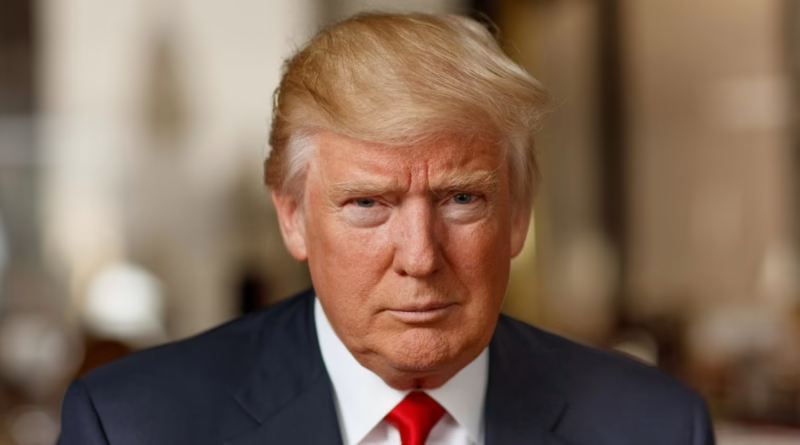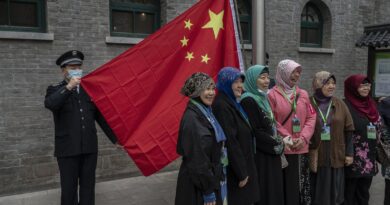Christian Leaders Press Trump on Syria’s Faith Crisis
Faith Leaders Rally for the Persecuted
More than 80 prominent Christian leaders have signed a joint letter urging the U.S. President Donald Trump to confront Syria’s deepening religious persecution crisis as he met with newly installed Syrian President Ahmed al-Sharaa in Washington, D.C.
The letter, dated November 7, 2025, calls on Trump to take a firm stand for Christians, Druze, Kurds, and Alawites—minority groups that have suffered relentless violence amid the country’s 13-year conflict. It was authored by Dede Laugesen, president of the advocacy organization Save the Persecuted Christians.
“With the visit of Syria’s new President, Ahmed al-Sharaa, scheduled for Nov. 10, 2025, we urge you to address directly the massacre of Christians, Kurds, Druze, and Alawites in Syria, notably in the greater Suwayda area,” the letter reads.
A Call to Action Amid Crisis
The signatories described a dire situation in Syria, where religious minorities face systematic persecution, forced displacement, starvation, and deprivation of essential resources. Women and children, the letter emphasized, continue to suffer at the hands of ISIS and other extremist groups still operating in fragmented regions of the war-torn nation.
“President Trump is the only major world leader actively championing religious freedom,” Laugesen wrote, referencing his recent comments condemning the persecution of Christians in Nigeria. “We believe he has both the platform and moral authority to press Syria’s new leadership to protect its vulnerable citizens.”
Read Also: Top 2025 UTME Students Get Cash from Deeper Life.
The leaders also commended Trump’s administration for sending emergency humanitarian aid to southern Syria but warned that “more must be done to prevent an impending catastrophe” as winter draws near.
Urging for a Humanitarian Corridor
One of the key appeals in the letter is the creation of a secure humanitarian corridor from Hader to Suwayda in southern Syria.
“This corridor will enable safe and secure aid delivery and civilian evacuation, signaling the new government’s commitment to minority rights and stability,” the letter stated.
The corridor, they argue, would be a tangible sign of goodwill and reform from al-Sharaa’s administration, offering a pathway for civilians to access food, water, and medical assistance that have long been blocked by ongoing military operations.
Who Signed the Letter
The document bears the signatures of several high-profile Christian figures and religious liberty advocates, including:
Dr. Ben Carson and Eric Metaxas, both members of the White House Religious Liberty Commission
- Sam Brownback, former U.S. Ambassador-at-Large for International Religious Freedom
- Tony Perkins, President of the Family Research Council
- Ralph Reed, founder of the Faith & Freedom Coalition
- Prominent pastors Rob McCoy, Jack Hibbs, and Rob Pacienza, among others.
Together, these leaders represent a unified front across denominational lines, reflecting the global Christian community’s concern for the survival of religious minorities in Syria.
A Historic Meeting in Washington
Monday’s meeting between Trump and al-Sharaa marked a historic moment—the first time a Syrian president has visited Washington, D.C. since Syria’s independence in 1946.
Al-Sharaa, a former leader within al-Qaeda’s Syrian affiliate, al-Nusra Front, rose to power after the ousting of longtime ruler Bashar al-Assad in December 2024. Assad’s fall came after his regime crumbled under pressure from Hayat Tahrir al-Sham and other militant groups, forcing him to flee to Russia.
Since taking office, al-Sharaa has sought to rebrand himself as a reformist willing to rebuild the nation and re-engage with the global community. His visit to Washington represents a significant diplomatic shift as Syria prepares to rejoin the international coalition against ISIS, becoming the 90th member nation.
Trump: “We Want to See Syria Succeed”
Speaking to reporters after the meeting, Trump expressed optimism about Syria’s future under al-Sharaa’s leadership.
“We want to see Syria become a country that’s very successful,” Trump said. “And I think this leader can do it. I really do.”
The former president confirmed that the U.S. would allow Syria to reopen its embassy in Washington, restoring diplomatic relations suspended since 2012.
Despite al-Sharaa’s controversial past, Trump suggested that his experiences could equip him to navigate Syria’s complex recovery process.
“He’s had a rough past,” Trump remarked. “And frankly, if you didn’t have a rough past, you wouldn’t have a chance.”
Al-Sharaa’s Bid for Legitimacy
President al-Sharaa, in turn, downplayed his militant background, saying that the focus of his discussions with Trump was on “the present and the future” of Syria.
“Our conversations were about rebuilding a Syria that contributes to global peace and stability,” he told reporters. “Syria is ready to become a geopolitical and economic partner with Washington.”
While critics have expressed skepticism about his intentions, others believe al-Sharaa’s pragmatic tone could signal a new chapter of cooperation between the U.S. and Syria—particularly on counterterrorism, reconstruction, and regional stability.
A Turning Point for Syria’s Minorities
For Syria’s embattled religious communities, this meeting and the advocacy surrounding it represent a glimmer of hope after years of silence from the international community.
If successful, the proposed humanitarian corridor and renewed U.S.-Syria engagement could ease suffering for thousands of displaced families and reaffirm the global importance of religious freedom as a pillar of peacebuilding.
“Protecting these vulnerable communities is not only a moral obligation,” Laugesen said, “but also a critical step toward ensuring Syria’s long-term stability.”
As winter looms and Syria’s reconstruction challenges intensify, faith leaders and advocates are urging world powers not to look away. Their message is clear: without protecting religious freedom, there can be no true peace.
Content Credit | Olaoluwa Ayomide
Image Credit | google.com




